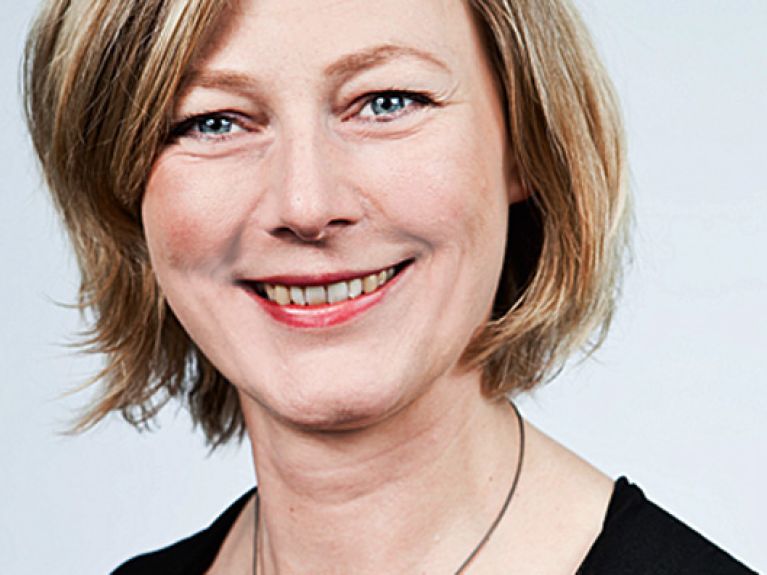“Digital jobs have a future”
In an interview, Gesche Joost, Digital Champion of the Federal Government, talks about her duties, her goals and her successes.

Professor Joost, you were appointed as Germany’s Digital Champion within the European Union. What does this position involve?
Every member state of the EU sends a Digital Champion to Brussels. They are meant to create a link between the European Digital Agenda and what is going on in the different member states. We meet roughly three times a year and examine very concrete projects within the Digital Agenda. The most recent of these is the Grand Coalition for Digital Jobs, which focuses on the future of digital employment. This is a topic that is extremely important in Europe as a means of countering youth unemployment in southern Europe. Digital jobs can offer real prospects for the future here. We want to bring together ideas from the different member states and improve the training opportunities for digital occupations.
Many people in Germany view debates about big data, the intelligent analysis of large amounts of data, with considerable scepticism. How do you answer that?
We are currently experiencing a highly fraught debate in which big data is primarily presented as a threat. It is undoubtedly important to define the limits of data use, to secure citizens’ right to transparency about their data and to guarantee a clear option to terminate data use. On the other hand, the energy transition, the move to renewable energies, will not be possible without big data analyses. Many innovative services use anonymised data and make our everyday lives easier – for example, when our car navigation system tells us how to avoid the next traffic jam. We should therefore not generally criticise the use of data, but lay down clear limits for the use of personal information.
Big data also offers big potential. Where do you see a need to make up lost ground when it comes to the digital revolution?
In Germany and Europe we need a data policy that differentiates between various categories of data – for example, between big data, personal data and open data. We must define ethical limits for the use of big data and at the same time clarify how the processing of personal data can be regulated and how Internet users can be empowered to responsibly decide for themselves which data can be used. Data literacy, competence in handling data, is an important concept here that ought to be promoted.
You discuss successful digital strategies with the other European Digital Champions. Which ideas have impressed you most?
2013 saw the launch of Code Week, during which programming courses were offered in many schools and public institutions. Almost all EU member states took part. In 2014, Germany also participated for the first time – with over 70 courses for children and young people. That is an important topic. I believe children should already begin to learn programming in primary school. Let me give you a second example. In other countries, in Scandinavia, for instance, university degree programmes in specific fields are more quickly adapted to take into account the latest developments in technology. Teaching must be developed to enable the transfer of the right skills. Germany has not been a pioneer, but actually rather reserved when it comes to networked education. We should be bolder in defining our position here – and utilise the new opportunities offered by networking.
Interview: Clara Görtz
Professor Dr Gesche Joost
holds a professorship in design research at the Berlin University of the Arts. In March 2014, Sigmar Gabriel, Federal Minister for Economic Affairs and Energy, appointed her Digital Champion for Germany within the framework of the European Commission initiative of that name. One of her goals is an inclusive digital society that is open “not only for a tech-savvy elite”, as she describes it, but for everyone.
